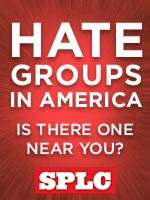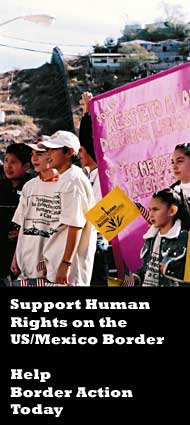Introduction
It’s pretty clear that some Americans are taking “retro” way too seriously.
Probably about 25-30% of the country is channelling 19th Century Know-Nothingism, and I would say that we ignore the astonishing similarities between them and us, and the surrounding climates then and now, at our peril.
I suspect that American history doesn't offer many moments like this, when we may seem intuitively to understand their world because of what's happening in our own.
The “Know-Nothings” sprouted in a climate of economic insecurity, slavery, immigration fears, and disgust with the establishment. If we see today's great moral questions as loose counterparts to the slavery issue--as presenting implacable moral dilemmas that disdain compromise--this sounds all too familiar. If so, looking back at how the Know-Nothings perceived and wanted to address, say, the influx of immigrants then might help us sort through the hail of nativism we face now. Comparison seems to suggest that we haven’t much improved our capacity to solve complex human problems. One fruitful question--there are others--is why not. Here history's distance may help us see some answers. The important thing is not to despair.
I sought the help of my kind friend, the distinguished historian Michael Bellesiles, to help us explore the anti-immigation Know-Nothings. I’m pleased and honored to share his perspective with you and hope that it will introduce more consideration of populism and the immigration issue then and now.
Pico
Forgetting the Past
By Michael Bellesiles, PhD
The danger could not be more obvious.
“Already have foreigners increased in the country to such a degree, that they justly give us alarm. They feel themselves so strong, as to organize themselves even as foreigners into foreign bands, and this for the purpose of influencing our elections.” Waving their foreign flags and speaking their strange languages, they “clan together as a separate interest, and retain their foreign appellation.” The liberals tell you to “complain not of the outrages in your streets, nor the burden of your taxes. You will be repaid in praises of your toleration and liberality.” It is “high time that a true American spirit were roused to resist this alarming inroad of foreign influence upon our institutions, to avert dangers to which we have hitherto shut our eyes, and which if not remedied, and that immediately, will inevitably change the whole character of our government. . . . Shut the open gates. The very first step of safety is here. It is the beginning of defense.”Who is this political leader bluntly raising the specter of uncontrolled immigration? Tom Tancredo? Mitt Romney? Rudy Giuliani? No, it is none of the above.
These sentiments were voiced by Samuel F. B. Morse, the inventor of the telegraph, in 1835. Over the ensuing years he would emerge as the most ardent voice of American nativism, playing a key role in organizing and funding the notorious American or Know-Nothing Party. Morse and his adherents were convinced that the United States was being overrun by Catholic immigrants who posed a danger to America's culture and democratic institutions. As Morse asked, "Can one throw mud into pure water and not disturb its clearness?"
When Morse looked at the Irish and other Catholic hordes flowing into the United States, he saw a dangerous, uneducated, and easily manipulated mass who would never be assimilated into American society. “The notorious ignorance in which the great mass of these emigrants have been all their lives sunk, until their minds are dead, makes them but senseless machines; they obey orders mechanically, for it is the habit of their education, in the despotic countries of their birth.” To nineteenth-century Protestants, Catholicism looked like a hierarchical cult, headed by Pope who claimed infallibility and had to be obeyed in all matters, religious and political.
Morse and the thousands of Americans influenced by his writings could not imagine how these simple and uneducated people could be expected to participate intelligently in a democracy. “Must not the priests, as a matter almost of certainty, control the opinions of their ignorant flock in civil as well as religious matters?” If unchecked, the immigrants would tear down the wall of separation between church and state. “It is a fact,” Morse insisted, “that Roman Catholic Priests have interfered to influence our elections.”
With the danger so apparent, Morse could not understand why most political leaders remained silent. Morse had no doubt that the majority of native born Americans wanted an alteration in the country’s immigration policies so as to slow down this influx of inassimilable foreigners. But instead of acting in the interests and desires of their constituents, Congress sought to “throw down all the barriers which protect us as an independent nation” and welcome these illegal immigrants in the name of democracy and humanity, as though the people of the United States should bear the burden of freeing the entire world. Before long, Morse warned, the native born would be swamped by the newcomers and the country would become unrecognizable.
When the Order of the Star Spangled Banner, as it was originally known, was formed in New York City in 1849, it consisted primarily of Democrats who were dissatisfied with their party’s open welcome of Irish Catholics. Within two years, thousands of members of the collapsing Whig Party would be joining them in the American Party, which sought to put a halt to the nation’s open immigration policy.
With Morse, most members of this new political party were convinced that a foreign conspiracy of anti-democratic forces benefitted from America’s open borders, so they structured their party as a secret society in which members were supposed to respond to allay prying questions with the answer, “I know nothing.” Before long this anticipation of Sergeant Schultz proved irresistible as an apt appellation for these nativists who ignored their own origins in an immigrant past.
Most historians agree that the Know-Nothings attracted people disturbed with the rapid pace of change in the United States. They watched helplessly as their nation industrialized, attracting tens of thousands of “aliens” to fill jobs in the expanding economy. They felt powerless to halt developments they were certain would destroy their “way of life,” and resented the cacophony of languages they could hear on the streets of any American city.
Ironically, given their insistence on resisting change, Know-Nothings sought to alter the United States in a number of significant ways. First and foremost, they demanded severe restrictions on Catholic immigration. It was as clear to them as to Samuel Morse that Catholics could not think for themselves and therefore had no place in the United States. To reinforce that exclusion, the party platform called for laws requiring all teachers to be Protestants and daily readings from the King James Version of the Bible. The separation of church and state would be retained so long as everyone was Protestant. Further, citizenship should be granted only after twenty-one years of residence, and only native-born Americans could hold political office. And since it was widely believed that Catholics drank too much, restrictions were to be placed on the sale of liquor.
Despite the latter article of their platform, the Know-Nothings enjoyed remarkable success in a very brief period. In 1854 they captured nearly every important office in Massachusetts. Know-Nothing candidates won election as mayor of San Francisco, Philadelphia, Chicago, and Washington, D.C., as well as governor of California. By the end of the following year, Know-Nothings had been elected legislators throughout the country, and the party claimed eight governors, forty-three members of the House of Representatives, and five U.S. Senators.
The party expanded at an astounding rate, and looked prepared to bridge the sectional divide in the United States on the issue of immigration. In 1855, a prominent member of that other new political party, the Republicans, warned that if the Know-Nothings gained control, that they would change the Declaration of Independence to read "all men are created equal, except negroes, and foreigners, and catholics." In such circumstances, Abraham Lincoln would “prefer emigrating to some country where they make no pretence of loving liberty-to Russia, for instance, where despotism can be taken pure, and without the base alloy of hypocracy [sic].”
Lincoln had cause for concern, but the danger of a Know-Nothing victory faded quickly. In the 1856 election their candidate for President, Millard Fillmore, garnered 21% of the popular vote, though he only carried the state of Maryland in the Electoral College. After that election the Know-Nothings went into rapid decline. On one hand they had been quite correct: All those immigrants did transform the United States, participating in its democratic institutions and not caring one bit for a party that labeled them unworthy of citizenship. But equally important was the polarization of the country over slavery. Southern Democrats attacked the Know-Nothings for not being sufficiently pro-slavery and Northern Republicans denigrated the Party for its failure to oppose the spread of slavery. With slavery surpassing immigration as the primary political issue before the nation, the Party’s membership quickly deserted for the parties taking a stand on this far more significant issue.
Nativism would of course rise again, though in some deeply ironic ways. Just twenty years after the high tide of the Know-Nothing Party, the Irish immigrant Dennis Kearney would lead his Workingman’s Party in California in effective opposition to Chinese immigration. Repeatedly in American history we find the children and grandchildren of immigrants insisting that now was the time to shut the door; now that their families had found safety, freedom, and prosperity in the United States it was only fair to refuse admission to all others. They and generations of Americans have benefitted from the failure of the original Americans such as the Powhatan of the Chesapeake and Pequot of New England to institute immigration policies.
"You have a massive legal and illegal immigration of a great many people who don't want to be Americans. It's dangerous. We could end up with a cultural, linguistic and even political Tower of Babel. . . .The threat to the United States comes from two things: the act of immigration combined with the cult of multiculturalism. We will never be able to win in the clash of civilizations if we don't know who we are. If Western civilization succumbs to the siren song of multiculturalism, I believe we are finished."Samuel Morse? Millard Fillmore? Dennis Kearney? No, this quotation is from Representative Tom Tancredo (R-CO) in 2007. Like his nativist predecessors, Tancredo perceives the country changing in frightening ways. And like previous nativists, he hopes to resist these new developments by changing the United States and putting an end to its historic role as a sanctuary of freedom and opportunity. These modern children of immigrants are safe and prosperous in the nation Emma Lazarus famously called “the Mother of Exiles,” and so it is time to extinguish the “lamp beside the golden door.” The Know-Nothings have returned; but this time they are trying to take over the Republican Party.
Michael Bellesiles has taught at universities in the United States, the United Kingdom, Italy, and Germany. He has written thirty scholarly articles and eight books, includingRevolutionary Outlaws: Ethan Allen and the Struggle for Independence on the Early American Frontier and Arming America: The Origins of a National Gun Culture (awarded the Bancroft Prize in 2001. He is the only person to ever receive both the Pelzer and Binkley-Stephenson article of the year awards from the Organization of American Historians (in 1986 and 1996).



















1 comments:
Is there a bigger contradictory term in the world than 'American Nativism?' I assume you know, but in case you don't, you should look into a visa called the eb5 investor visa. This visa allows immigrants to enter the country under the premise that they will be injecting at least $500,000 into the economy and creating at least 8 jobs. The last few years have seen record DESTROYING numbers for issuances of these visas. The next time somebody starts talking about the perils of immigration, mention this visa and the amount of jobs it is creating for AMERICANS!!
Post a Comment